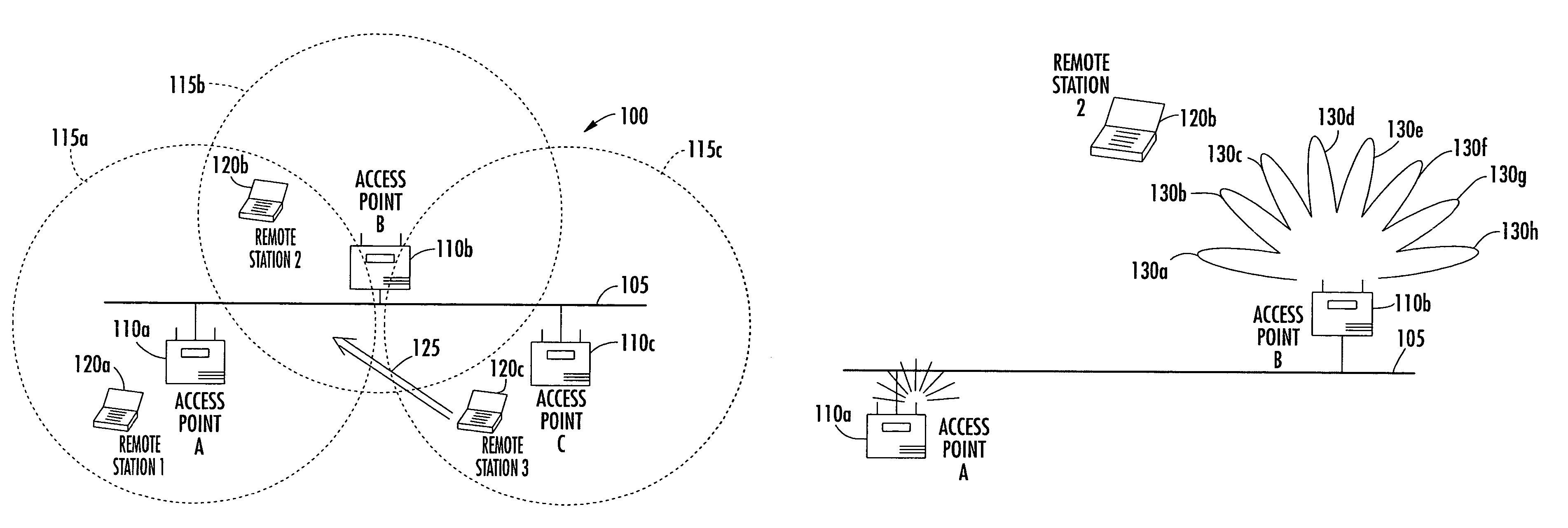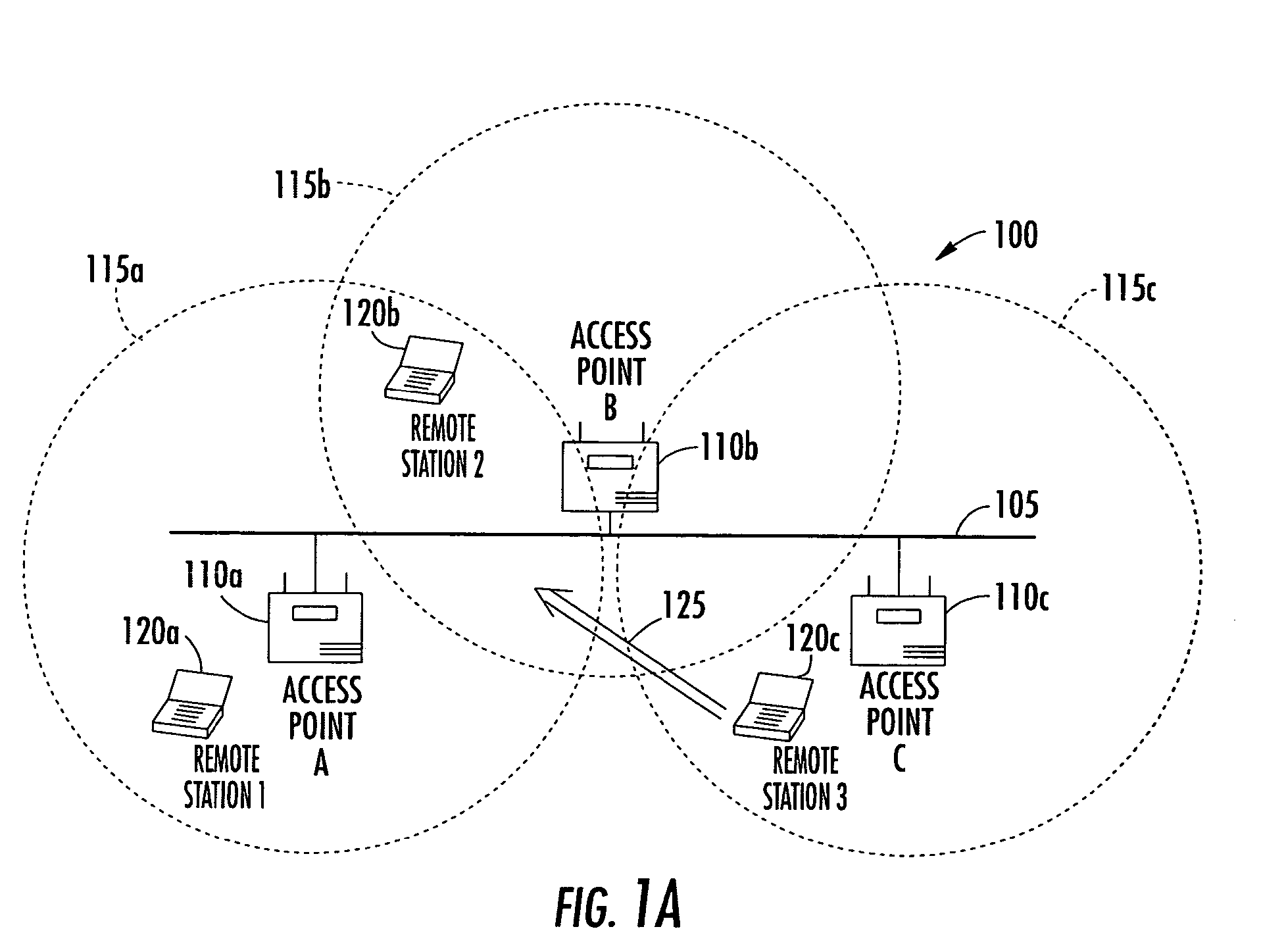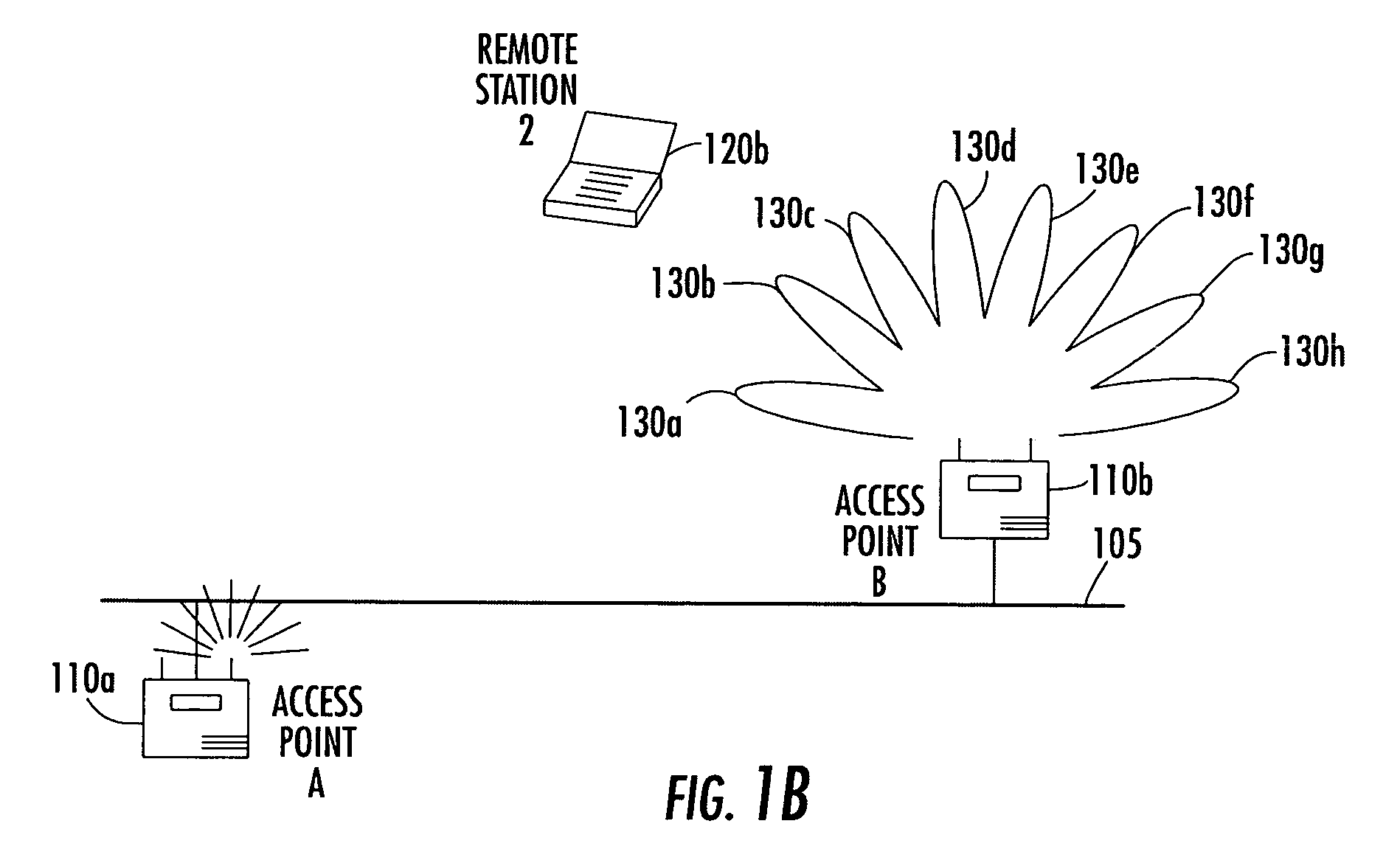Antenna steering for an access point based upon spatial diversity
a technology of spatial diversity and access points, applied in diversity/multi-antenna systems, wireless communication, wireless communication, etc., can solve the problems of monopolizing antennas and degrading the quality of communication between remote stations and access points, so as to improve the throughput of individual remote stations, support more users in the network, and enhance the effect of access points
- Summary
- Abstract
- Description
- Claims
- Application Information
AI Technical Summary
Benefits of technology
Problems solved by technology
Method used
Image
Examples
Embodiment Construction
[0039]The present invention will be described more fully hereinafter with reference to the accompanying drawings, in which preferred embodiments of the invention are shown. This invention may, however, be embodied in many different forms and should not be construed as limited to the embodiments set forth herein; rather, these embodiments are provided so that this disclosure will be thorough and complete, and will fully convey the scope of the invention to those skilled in the art. Like numbers refer to like elements throughout, and prime notation is used to indicate similar elements in alternate embodiments.
[0040]Referring initially to FIG. 1A, a wireless local area network (WLAN) 100 having a distribution system 105 will initially be discussed. Access points 110a, 110b and 10c are connected to the distribution system 105 via wired connections, such as wired data network connections. Each of the access points 110a, 110b and 110c has a respective zone 115a, 115b, 115c in which it is ...
PUM
 Login to View More
Login to View More Abstract
Description
Claims
Application Information
 Login to View More
Login to View More - R&D
- Intellectual Property
- Life Sciences
- Materials
- Tech Scout
- Unparalleled Data Quality
- Higher Quality Content
- 60% Fewer Hallucinations
Browse by: Latest US Patents, China's latest patents, Technical Efficacy Thesaurus, Application Domain, Technology Topic, Popular Technical Reports.
© 2025 PatSnap. All rights reserved.Legal|Privacy policy|Modern Slavery Act Transparency Statement|Sitemap|About US| Contact US: help@patsnap.com



